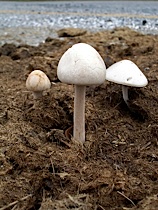The House Energy and Commerce Committee just approved comprehensive food safety reform, setting it up for consideration on the House floor in the coming months. The Food Safety Enhancement Act was approved by voice vote, indicating bipartisan support and suggesting a relatively smooth passage through the entire House.
bpa
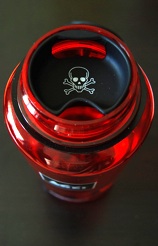
Industry Brainstorms How To Convince Consumers BPA Isn't The Devil
As studies continue to link bisphenol-A (BPA) with all sorts of health problems, states and cities are banning the chemical from baby bottles and sippy cups and Congress is considering a ban in all food containers. This worries industry groups, who last week held a private meeting to devise strategy to protect the use of BPA. Someone sent the notes to the Washington Post.
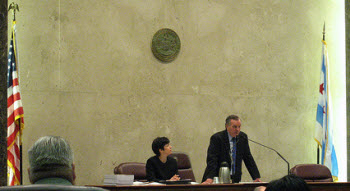
Chicago Bans BPA In Baby Bottles
The Chicago City Council has voted to ban the controversial chemical BPA in baby bottles, says the Associated Press.
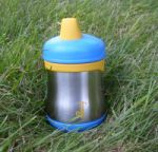
Minnesota Becomes First State To Ban BPA
Minnesota has enacted the “Toxic Free Kids Act,” which will ban bisphenol-A (BPA) in sippy cups and baby bottles. Minnesota joins Suffolk County, New York, which banned BPA earlier this year. Other states and counties, as well as the federal government, are considering bans on the potentially dangerous chemical, which has been linked to all sorts of adverse health effects. The Minnesota ban goes into effect in 2011. (Photo: tiffanywashko)
../../../..//2009/04/02/suffolk-county-executive-steve-levy/
Suffolk County Executive Steve Levy has signed the nation’s first BPA ban into law. The law bans BPA from empty children’s containers like sippy cups and bottles, and will go into effect in 90 days. The infants of Long Island just got a little safer.
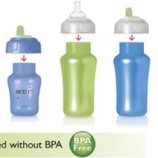
No More BPA Baby Bottles In US?
Philips Avent, the nation’s largest seller of baby bottles, announced today that it will voluntarily stop selling bottles containing the controversial chemical bisphenol A (BPA). Attorneys general from Connecticut and New Jersey had written a letter to several bottle makers asking them to stop, and the Washington Post says the six largest baby bottle manufacturers in the country have voluntarily complied.
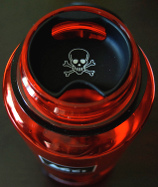
Suffolk County Bans Bisphenol-A In Baby Bottles
Suffolk County, New York enacted the nation’s first Bisphenol-A (BPA) ban on Tuesday when it voted to ban BPA from bottles for children 3 and under.
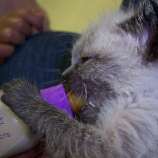
Chicago Considering A Partial Ban On Bisphenol-A Products
Chicago might become the first place in the United States to partially ban the sale of products that contain Bisphenol-A (BPA), the chemical that some studies have shown may have harmful effects on humans. They’re proposing to forbid the sale of any BPA product intended for children. Canada banned the chemical last year, but the FDA has so far come down on the side of manufacturers.
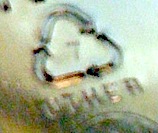
Study Finds Bisphenol-A Can Enter Your Body Through Non-Food Sources
A new study from the University of Rochester shows that bisphenol-A (BPA), a potentially toxic chemical found in many plastics, can enter the body via non-food sources and lingers in the body longer than previously thought.
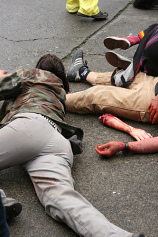
BPA Levels Higher In Those With Heart Disease Or Diabetes
those with the largest amount of BPA in their urine had nearly three times the risk of heart disease and more than twice the risk of diabetes as those who had the lowest levels.
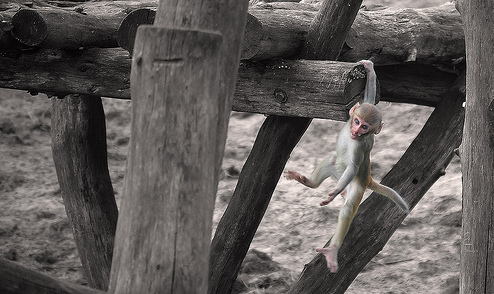
Confirmed: BPA Will Harm Your Monkey
Researchers at the Yale School of Medicine have linked [BPA] to problems with brain function and mood disorders in monkeys—the first time the chemical has been connected to health problems in primates.
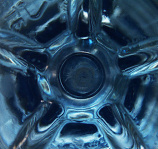
FDA Declares Bisphenol A Safe
Bisphenol A, or BPA, is the chemical used in various plastic bottles and can linings that Canada recently banned, consumers in Arkansas, California, and Ohio have filed lawsuits over, and Playtex and Nalgene have stopped using. The fear is that it’s toxic—studies on animals in Canada have shown that it’s damaging, and some tests in the U.S. suggest it’s harmful to humans as well. Critics of the anti-BPA movement point out that the human studies rely on super high dosages that never occur in real life, and that making safety decisions based on the general public’s fears isn’t exactly scientific.

../../../..//2008/06/20/you-can-get-a-free/
You can get a free Playtex Drop-Ins “nursing system” via this page. It’s apparently their way of saying, “Look! We don’t use BPA anymore!” [Playtex Baby]
../../../..//2008/06/20/its-been-a-few-weeks/
It’s been a few weeks without a BPA story, so here goes: Four parents in Ohio have sued Evenflo, Avent America, Handicraft, Playtex Products, and Novartis for using bisphenol A in their baby products. They’re seeking class action status. [Washington Post]
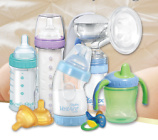
Woman Sues Playtex Over Bisphenol-A
A woman in Arkansas has filed a federal lawsuit against Playtex Products over their use of BPA in plastic baby bottles, claiming that the company “failed to adequately disclose that its plastic bottle products are formulated using BPA,” according to MSNBC. The suit is seeking class action status, which would make it the second BPA-related class action lawsuit after the one in California against Nalge Nunc International (the makers of Nalgene bottles)—although the chemical is still not classified as toxic in the U.S.
../../../..//2008/05/05/amazon-launched-a-new-bpa-free/
Amazon launched a new “BPA-free” baby supply shop (BPA is a chemical found in some plastic bottles that may cause cancer). The only problem was that not all of the bottles were BPA-free. [Z Recommends]

First BPA Class Action Lawsuit Announced!
It begins! A woman in California, no doubt under the expert legal advice of people who only have her best interests at heart, has filed a lawsuit against Nalgene alleging that they “knew, but downplayed risks, that a toxic substance in its popular…
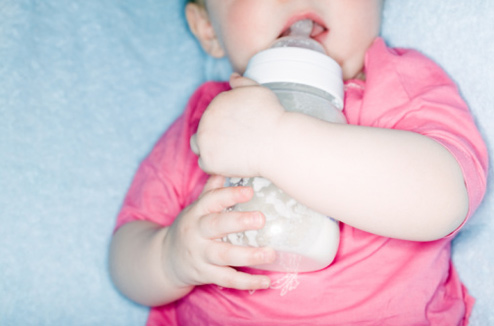
Should Companies Replace BPA Baby Products In The U.S.?
There’s nothing official about BPA in the U.S. (yet), and there’s no legal reason (again, yet) for a company to refund or replace any products that have BPA in them.


